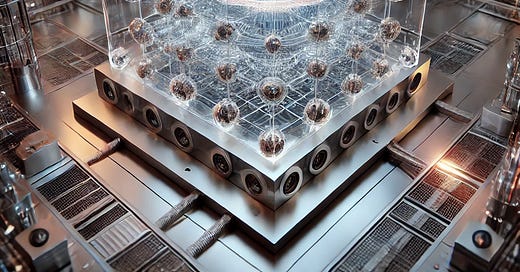The Future of Computing, or Not Just Yet?
Google recently released Willow – the world's first quantum chip demonstrating exponential scaling capability in computations.
For the first time in history, someone has succeeded in creating logical qubits that perform below the Quantum Error Correction boundary. This is a method where data is preserved by distributing information across multiple qubits. Typically, computation errors are a key problem in quantum machines. Qubits exchange information too quickly and tend to lose it. Usually, the more qubits you use, the more errors occur, and the quantum system degrades into a classical one. But in Willow, it's the opposite: as the number of qubits increases, errors decrease exponentially. This is a remarkable result that people have been trying to achieve for the last 30 years.
Now, prepare yourself: Willow is a septillion times faster than a classical computing chip. This means Willow can solve in 300 seconds a problem that would take a regular chip 10,000,000,000,000,000,000,000,000 years (and this was proven during testing). The chip also has a record number of qubits – 105. Of course, this is still small (for example, breaking bitcoin would require around 300-400 million qubits), but compared to previous quantum computers – wow.
Google also released an interesting short video about the history of quantum computing and Willow in addition to the blog post:
Key insight:
Google released their first quantum chip in 2019. Since then, classical computing has improved billions of times over. But while classical computing grows according to Moore's Law, quantum computing grows and will continue to grow according to Neven's Law, specifically at a double exponential rate relative to its classical competitors.
This law, by the way, was conceived by Hartmut Neven, who is currently the director of Google's Quantum Artificial Intelligence Laboratory. In an interview celebrating Willow's release, he says that quantum computing and AI will complement each other: AI can improve quantum chips, and quantum computers will make AI more powerful.
Also, notably, Google published their Willow paper in Nature. You can read it here: www.nature.com/articles/s41586-024-08449-y



